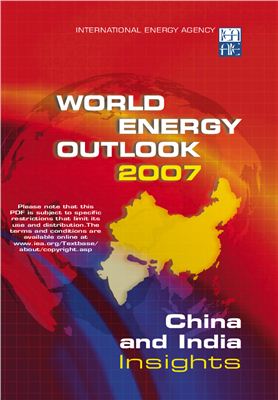На английском языке. Paris, OECD/IEA, 2007, 603 pages, ISBN:
9789264027305
World leaders have pledged to act to change the energy future. Some
new policies are in place. But the trends in energy demand,
imports, coal use and greenhouse gas emissions to 2030 in this
year’s World Energy Outlook are even worse than projected in WEO
2006.
China and India are the emerging giants of the world economy. Their unprecedented pace of economic development will require ever more energy, but it will transform living standards for billions. There can be no question of asking them selectively to curb growth so as to solve problems which are global. So how is the transition to be achieved to a more secure,
lower-carbon energy system?
WEO 2007 provides the answers. With extensive statistics, projections in three scenarios, analysis and advice, it shows China, India and the rest of the world why we need to co-operate to change the energy future and how to do it.
China and India are the emerging giants of the world economy. Their unprecedented pace of economic development will require ever more energy, but it will transform living standards for billions. There can be no question of asking them selectively to curb growth so as to solve problems which are global. So how is the transition to be achieved to a more secure,
lower-carbon energy system?
WEO 2007 provides the answers. With extensive statistics, projections in three scenarios, analysis and advice, it shows China, India and the rest of the world why we need to co-operate to change the energy future and how to do it.

